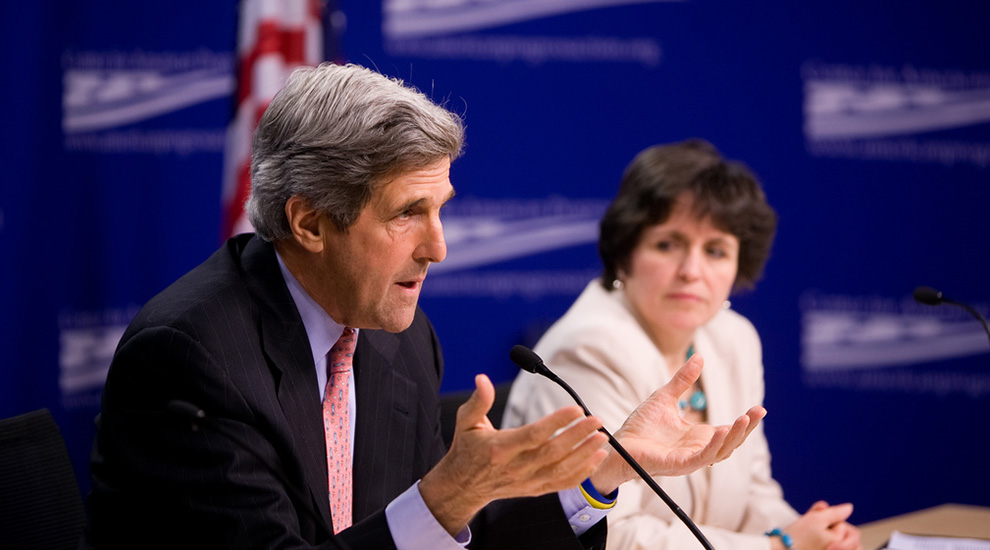U.S. State Department Recommends Development of Blockchain and Distributed Ledgers to International Partners
Last month the U.S. State Department launched the “American Innovation Roadshow” with the Association of Southeast Asian Nations (ASEAN). Senior members of U.S. Secretary of State’s John Kerry’s economic team led business delegations from financial investors, U.S. multinational and early stage companies. In two stunning speeches, the State Department began advocating the adoption blockchain technology.
Ambassador David H. Thorne, senior adviser to the secretary of state, was among those attending the roadshow. The ambassador leads a departmentwide effort to “position economic and commercial issues more prominently within the U.S. foreign policy landscape” and to “elevate the importance of entrepreneurship, technology and innovation in the State Department’s promotion of global prosperity.”
Thorne gave speeches at both the March 3 @America Innovation at Innovation and Entrepreneurship Presentations at Pacific Place in Jakarta, Indonesia and the March 7 Vietnam Ministry of Science and Technology Innovation Conference in Hanoi.
Speeches given by the ambassador encouraged these countries to adopt blockchain and distributed ledger technologies.
Both the Vietnam and Indonesia (prepared) remarks included the following similar, if not identical, recommendations:
“…[W]e would like to encourage the development of new financial technology or ‘FinTech’ innovations – blockchain and distributed ledgers, mobile banking, etc – which will provide a backbone to the e-commerce activity … These kinds of tools naturally encourage fiscal and business transparency, not just for start-ups but for everyone, which is a key for reducing corruption and improving efficiency.”
Bitcoin Blockchain Advances
Last year the White House named Dr. Ed Felten deputy U.S. chief technology officer. Felten was previously the director of the Center for Information Technology Policy (CITP) at Princeton University, and is a well regarded Bitcoin researcher.
Felten previously stated in CITP’s “Freedom to Tinker” blog that Bitcoin is “a new kind of thing: a currency whose rules are determined by open-source governance… [and that] governments will find new ways to influence it.”
Since Felten’s appointment, the Bitcoin community has been closely watching the Obama administration’s Bitcoin or “Blockchain Policy” — or lack of thereof. Back in 2014, the White House was asked at a daily briefing if it was monitoring Bitcoin and had a position on it.
Jay Carney, then White House press secretary, said only, “For administration’s position on it, I would refer you to the Treasury Department.”
In January 2015, the State Department sought a virtual fellow to serve with the Office of Monetary Affairs, Office of International Finance and Development and Bureau of Economics and Business Affairs as digital currency research consultant. According to the posting, “The State Department’s Office of Monetary Affairs (OMA) is responsible for monitoring developments in global currencies, including digital currencies such as Bitcoin.”
In January of this year, Bitcoin Vietnam and Coinify announcedthat they launched the first “blockchain payment processing platform” for Vietnam. In March the Vietnam Ministry of Industry of Trade issued caution against the use of Bitcoin and other altcoins (as reported by The Merkle).
In May 2015, The Wall Street Journal reportedthat Indonesians began embracing Bitcoin. Tribunnews.com of Jakarta reportsthat Bitcoin is quite popular in major cities across Indonesia even as the Bank of Indonesia continues to urge caution.
The American Innovation Roadshow dialog is the clearest signal yet that the Obama administration is not only looking at blockchain technologies favorably, but also proactively advocating its adoption.
Photo Center for American Progress Action Fund / Ralph Alswang
The post U.S. State Department Recommends Development of Blockchain and Distributed Ledgers to International Partners appeared first on Bitcoin Magazine.



